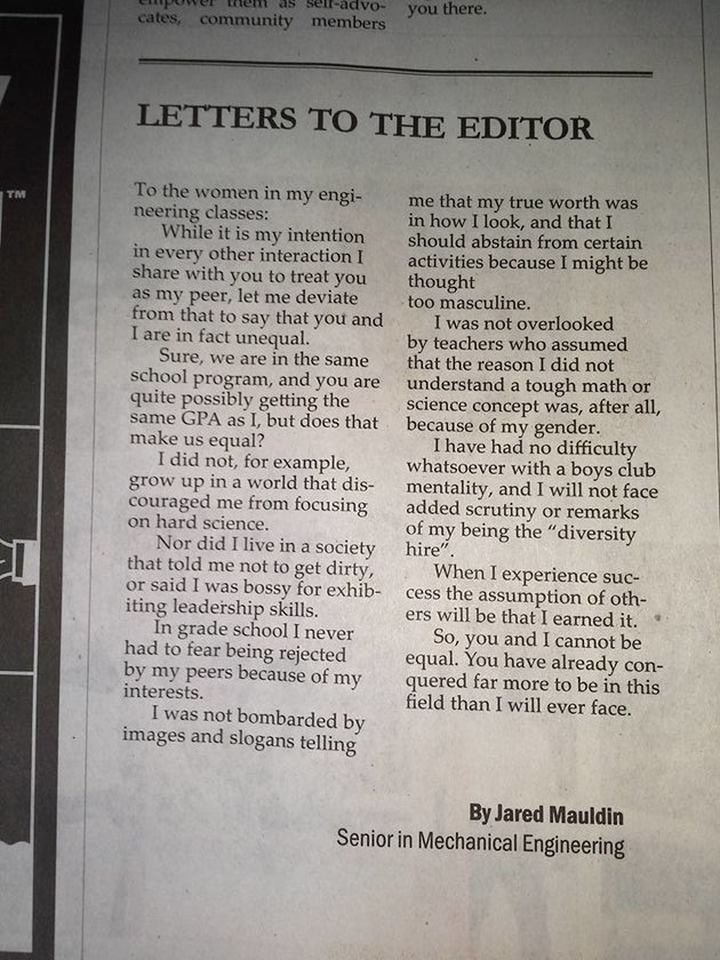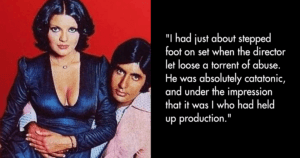Even in this day and age, when numerous successful women are setting examples in a chauvinist world, men and women are still treated differently. Be it at work place or educational institutions, women always have to go one step further to prove their worth.
This is not an unpopular phenomenon. And that’s exactly what Jared Mauldin, a student of mechanical engineering at Eastern Washington University, tried to explain in his letter he sent to the editor of the student newspaper – The Easterner .
His letter has an outrageous topic. He addressed his female peers and attempted to explain why they were not his equals. But what he writes is indeed true.

Mauldin starts his introduction by saying women are “are in fact unequal,” and explains why. “I did not, for example, grow up in the world that discouraged me from focusing on hard science,” he wrote. “Nor did I live in a society that told me not to get dirty, or said I was bossy for exhibiting leadership skills.”
Mauldin pinpoints that the difference is not the GPA of a female student, but the fact that she has to constantly prove her worth. He described a situation with one friend in particular who was treated differently in a calculus class simply because she is a woman.
A study by the Harvard review looking into sexism in STEM fields also supports Mauldin’s analysis. It stated that two-thirds of the 557 female scientists surveyed “reported having to prove themselves over and over again.”
Since it was published, Mauldin’s letter is going viral on social media. But Mauldin was of the opinion that he was only paid heed to because of his gender. Speaking to the media, he said, ” Nothing I said was new, it has all been said a thousand times before. The difference is that I am a man, maybe by standing up and breaking the silence from the male side, I can help some more men begin to see the issues, and begin to listen to the women who have been speaking about this all along.”

















